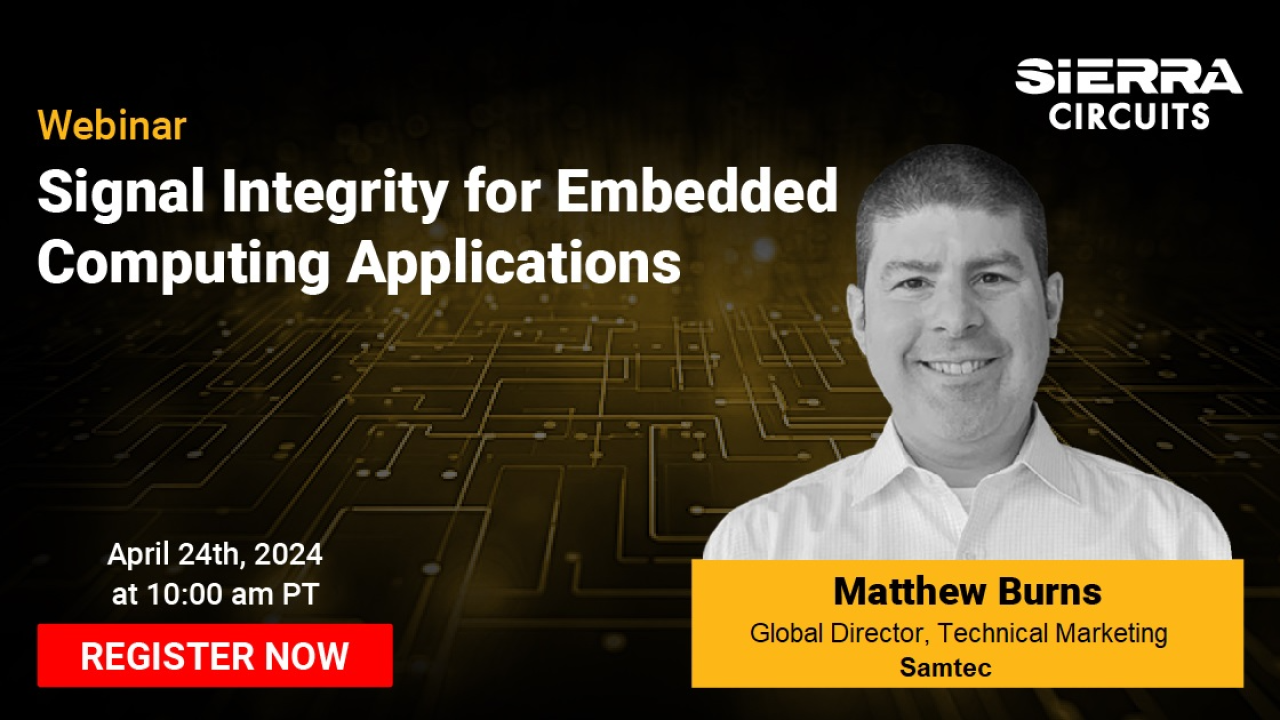
- This event has passed.
Webinar: Signal Integrity for Embedded Computing Applications by Matthew Burns
April 24 @ 10:00 AM - 11:00 AM

Embedded computing developers face new design challenges implementing high-speed protocols like 100 GbE, USB4, PCIe 5.0, DDR4/5, and more. This webinar introduces fundamental signal integrity concepts like insertion loss, return loss, and crosstalk, and relates them to a case study of the connector design for the COM-HPC Module Base Specification Revision 1.2 featuring the new COM-HPC Mini form factor.
When selecting high-speed connectors, several critical parameters need consideration. These include material properties such as dielectric constant and insertion loss, as well as ensuring impedance control and addressing signal integrity concerns like crosstalk. Additionally, exploring advanced connector technologies offers advantages, particularly in high-speed differential signaling. Understanding the design principles and considerations behind these connectors is crucial. Finally, implementing layout guidelines tailored to optimize connector performance and maintain signal integrity further enhances the effectiveness of the chosen connectors in high-speed PCB designs.
This webinar will be presented by Matt Burns of Samtec Inc.
Date and time:
Wednesday April 24th, 2024 at 10:00 AM PT
Location: Zoom
What you’ll learn:
– It’s more than the connector – Channel-level signal integrity
– Signal types
– Key SI parameters/design criteria
a. Impedance matching
b. Insertion loss
c. Return loss
d. Crosstalk
e. Design examples
– Signal integrity “rules of thumb”
– Design tips to improve channel performance
– High-speed design case study – PICMG COM-HPC® Mini Modules
Details
- Date:
- April 24
- Time:
-
10:00 AM - 11:00 AM
- Event Tags:
- applications, computing, embedded, sierra circuits, signal integrity, webinar
- Website:
- https://www.linkedin.com/events/signalintegrityforembeddedcompu7176969901163651072/comments/
Organizer
- Sierra Circuits
- View Organizer Website
Venue
- Online











Has ASML Reached the Great Wall of China